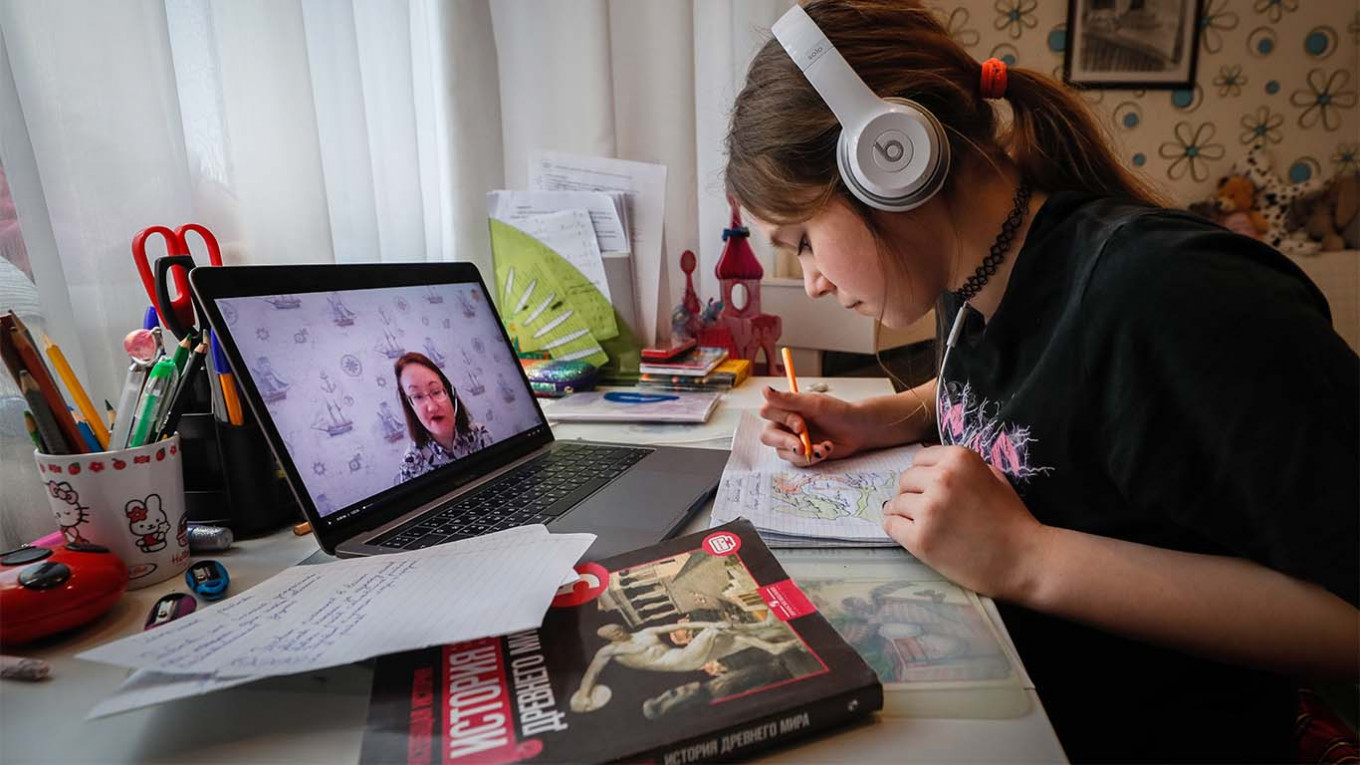
Online learning in the coronavirus era has affected the mental health of an overwhelming majority of Russian schoolchildren, according to a survey cited by the RBC news website Monday.
Russian schools went on a three-week holiday in mid-March at the start of the pandemic, switching to distance learning entirely as the number of cases spiked across the country. Schools in some regions have gone into quarantine in recent weeks as Russia resumed in-person teaching for the fall semester.
According to a survey by the Health Ministry’s national children’s health research center cited by RBC, 83.8% of Russian schoolchildren reported “adverse borderline mental responses” to distance learning and self-isolation.
A majority of the schoolchildren surveyed (55.8%) said they experienced disordered sleep, 42.2% depression and 41.6% abnormal physical weakness or lack of energy.
Nearly seven out of 10 schoolchildren (69.2%) reported limiting their movements and staying home during the pandemic, and one-quarter (25.4%) complained of getting less than seven hours of sleep.
Almost all of the young respondents (99.2%) said they used smartphones and other gadgets daily for school (73.1%) or other purposes (89.2%).
“The data indicates the need for mass psychological support for children and adolescents,” RBC wrote.
Almost two in five Russian schoolchildren (36.7%) said they viewed the coronavirus lockdown negatively, more than one in five (21.2%) called it unbearable, while 16.8% said they liked it.
The research center conducted the online survey among almost 30,000 Russian middle- and high school students between late April and late May.
Meanwhile, Russia’s education watchdog Rosobrnadzor reiterated Monday that it won’t require schools to go back to distance learning because health officials do not expect a second Covid-19 wave.
Russia has confirmed more than 1 million coronavirus cases and more than 18,500 deaths.
